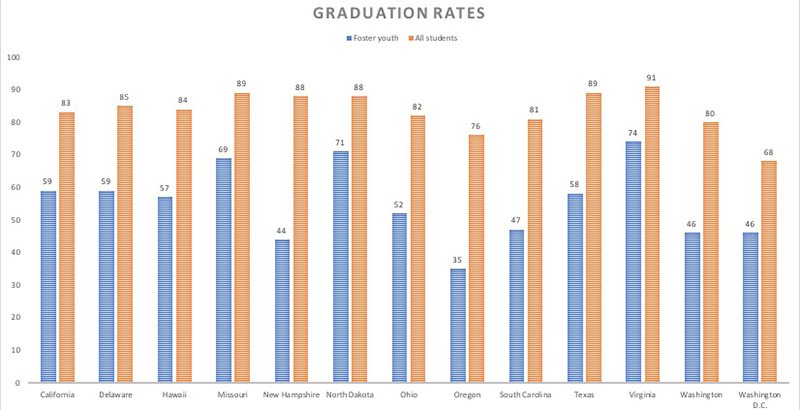Our 12 Most Popular Education Articles From February: Making Homework Count, a 70 Percent Jump in Homeless Students, Cory Booker’s Education Legacy & More
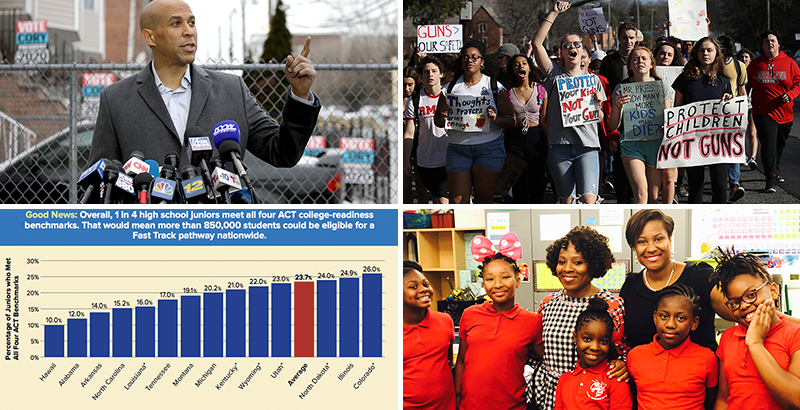
Every month, we round up our most popular and buzzed-about articles from the past four weeks. (Go deeper: See our top highlights from January, 2018, and beyond right here)
From an exclusive conversation with presidential candidate Cory Booker to states falling behind in surfacing information about students in foster care and a new report that suggests more than 800,000 high school juniors are ready to advance right on to college, it was a busy month for The 74’s newsroom. (You can always get our top news and analysis delivered straight to your inbox by signing up for The 74 Newsletter)
Here are the most read, shared, and buzzed-about articles from February:
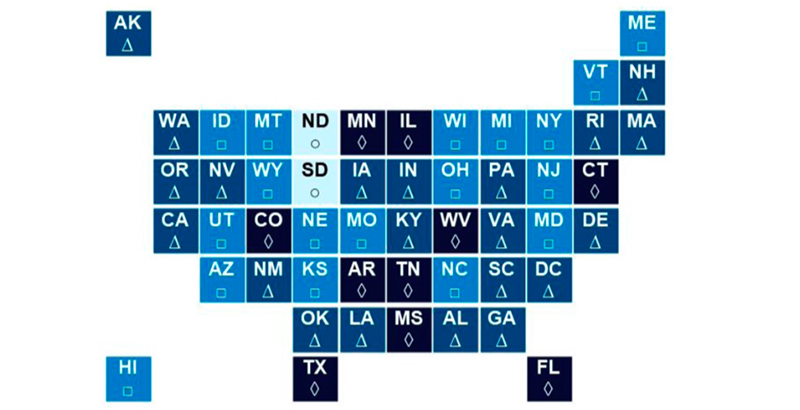
‘Whole Child’ Supports: Despite the devastating effect of stressful experiences — from mass school shootings to the opioid epidemic to immigration enforcement — on student performance, only 11 states encourage or require staff training on the effects of trauma. Half of states have policies on suicide prevention. And just one state, Vermont, has a law requiring that a school nurse be available daily at every school. Those are among the key findings of a new report from the nonprofit Child Trends, which found that a comprehensive set of policies that address student well-being — from children’s health to school safety — has yet to take root in most states. Just 10 states covered the policies comprehensively. Two states in particular, South Dakota and North Dakota, had “weak” laws on the suite of topics. (Read the full report)
Investigation: On their face, the allegations describe public officials being bought — for a pittance. Drinks in a hotel lobby. Airfare reimbursement for a meeting. A $4,000 “personal payment” appearing just before a mid-level functionary inks a government contract for the consultant offering the so-called perks. Indeed, the legal complaints filed in South Carolina, Georgia and Nevada have resulted in a string of juicy headlines. But layer in context and identify patterns that emerge, and it’s possible to paint a very different picture: The officials accused were all attempting to enforce rules that could shut down for-profit online-only charter schools that posted abysmal academic outcomes year after year. In an exclusive 74 investigation, Beth Hawkins takes a look at a long history of pushback by virtual charters, including large campaign contributions, social media campaigns and publicity stunts — and has identified a pattern of legal complaints in the three states aimed specifically at oversight officials themselves. Greg Richmond, CEO of the National Association of Charter School Authorizers, the organization at the center of the complaints, believes they are designed to shift attention away from the poor quality of the for-profit charters. “The complaint is full of falsehoods,” he said, “but it doesn’t matter.” (Read the full investigation)
Eating, Shopping, and Project-Based Learning: A View From Memphis’s Mall-Based Crosstown High
Project-Based Learning: One semester into the inaugural year at Memphis’s innovative Crosstown High School, a project based-learning charter school and recipient of a grant from the folks who run the XQ high school redesign contest, leaders are learning some important lessons. Not all projects catch students’ attention. Freshmen coming from years in a traditional school setting aren’t quite ready to totally guide their own learning. It’s hard to teach and test math in non-traditional ways. And given access to the unique mall setting that houses the school, teens will be teens. Carolyn Phenicie reports on the school’s unique curriculum and setting, and its leaders’ goal of attracting a diverse student body. (Read the full profile)
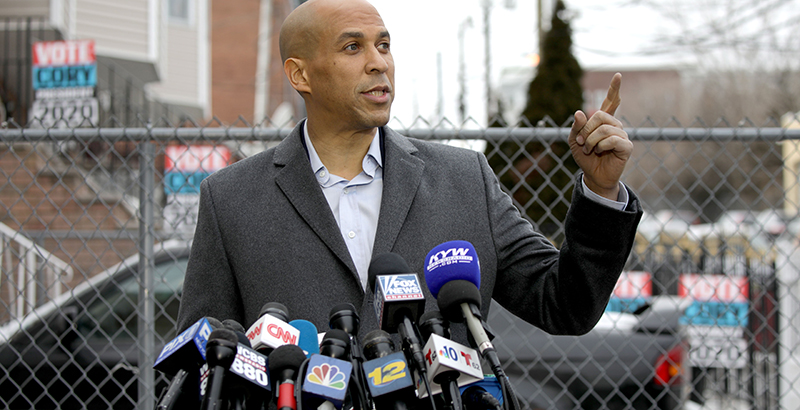
EDlection 2020: “What is your purpose? Why are you here?” Those questions from a neighborhood activist in Newark, Sen. Cory Booker says, set him on the path to local politics, education reform, the United States Senate — and now, a run for the White House in 2020. In an exclusive 74 Interview, Booker talked at length about his trajectory in the city, equity in education, new research about student outcomes in the district, how he enlisted celebrity star power — and dollars — to enact major change, and how “it seems like nobody wants to pay attention to the best school reform story in America.” (Read our exclusive interview)
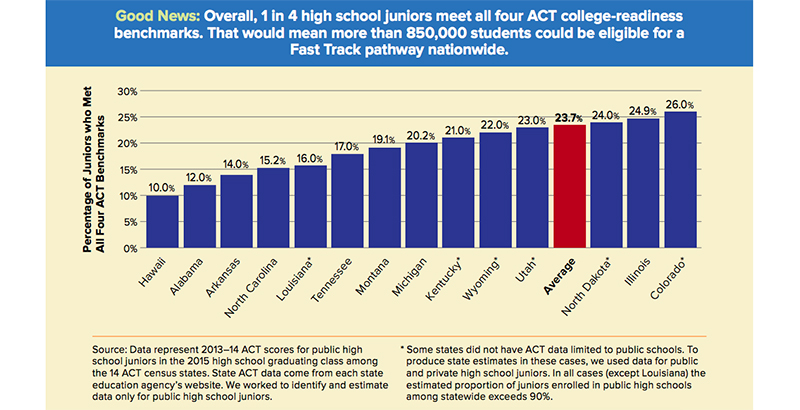
College Readiness: It’s nothing new that some bright high school students are ready to take on college classes before they turn 18. But did you know that nearly 25 percent of 11th-graders are academically ready for college-level classes, according to the ACT exam? This is one of the findings in a new report from Education Reform Now, which offers some solutions for expanding college opportunities to an estimated 850,000 high school students — one-third of whom are from low-income households. High schools could offer a college-ready track for seniors so that students who don’t want to give up homecoming or varsity football could still earn enough credits to get them through their first year at a university for free. Or, the students could graduate early, with a scholarship to cover expenses during their first year at college. Both would require a big policy lift from states, but, as one of the report’s authors said, the aim is to create more options for families within the public education system. (Read the full report)
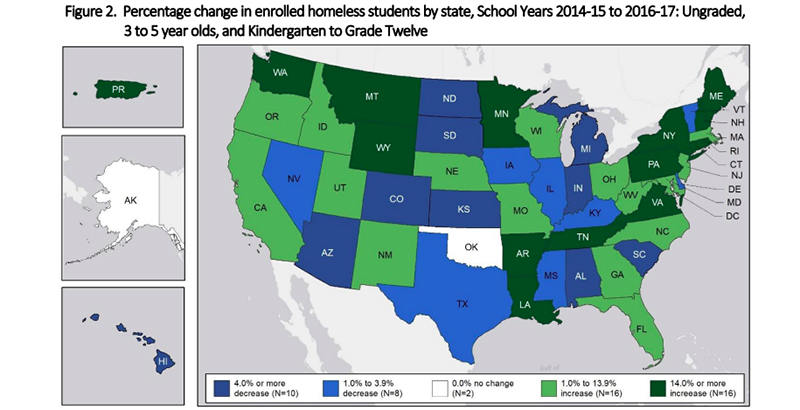
Big Picture: Student homelessness has hit an all-time high following a significant spike over the past three years, with 20 states experiencing a surge of 10 percent or more, new federal data released last week indicate. More than 1.3 million public school students experienced homelessness during the 2016-17 school year, a 7 percent increase over three years and the largest number ever recorded. Over the last decade, the population of students experiencing homelessness has spiked by a startling 70 percent. Homelessness has significant academic ramifications: Data from 44 states show that students who experienced homelessness during the 2016-17 school year had a graduation rate of 64 percent, versus 77.6 percent for other low-income students and a national average of 84 percent. (Read the full report)
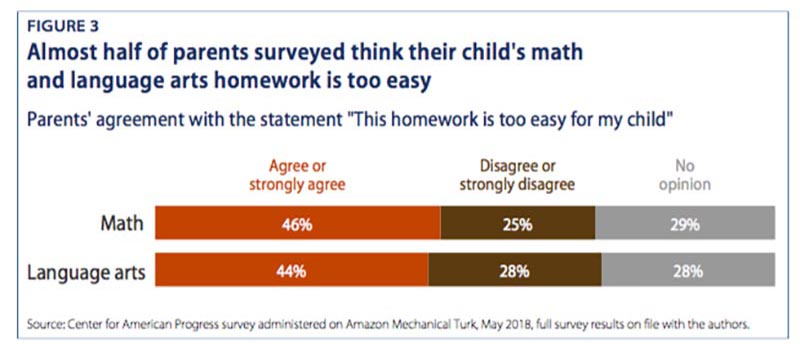
Standards: Some districts are banning homework for elementary school students, but a new study says out-of-school assignments should not only remain, but need to become more rigorous. Researchers from the Center for American Progress found that homework assignments from schools around the country largely focus on lower-level skills and not the critical-thinking competencies more associated with the Common Core standards. And parents are noticing. Nearly half of those surveyed said they believe their child’s homework is too easy, failing to challenge the student. 74 Contributor Brendan Lowe takes a closer look at the survey responses and the researchers’ analysis, and considers what steps families and educators can take to ensure that more rigorous work is being sent home. (Read the full report)
Every Student Succeeds Act: Want to know how well the students in foster care are doing in your state’s schools? The answer might be hard to find. While the Every Student Succeeds Act requires states to provide data on their annual report cards about whether these students are passing their standardized English and math tests and graduating high school, only 15 states and Washington, D.C., are doing so, an analysis by The 74 reveals. Though states originally had four years — the deadline was extended indefinitely under the Trump administration — to figure it out, some states are still struggling to gather and release statistics on these vulnerable students. And others that do have the information aren’t making it easy to access. Sometimes, finding out how many students in foster care are proficient in math involves making multiple wrong turns through a state website and decoding a spreadsheet. As Phillip Lovell of the Alliance for Excellent Education said, “It should not take a degree in statistics or 45 clicks in pursuing an Excel chart to find the answers.” (Read the full feature)
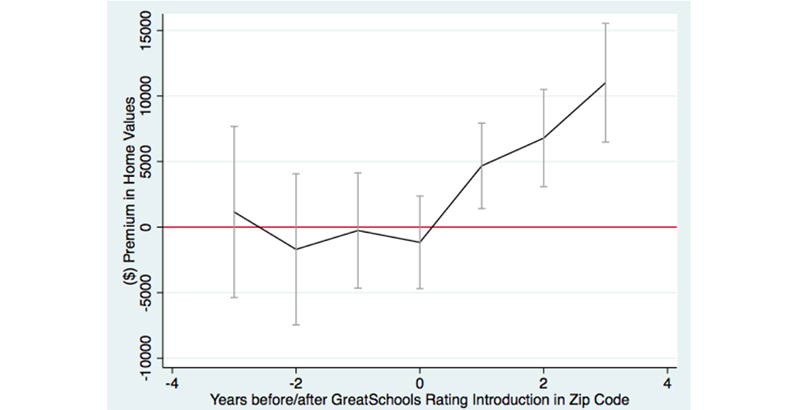
Integration: School quality ratings are a somewhat idealistic notion: If you provide parents with the best data on how schools are doing, they’ll make better decisions about where to enroll their kids. That’s great in theory, but what if only some parents look at that data or have the wherewithal to act on it? A new study finds that ratings from GreatSchools — a leading organization that rates thousands of schools on a 1 to 10 scale — may be inadvertently contributing to segregation by income and race. As the organization rolled out its grades, the authors find, affluent and well-connected families flocked to the areas with top-rated schools. GreatSchools says it is working with advocacy groups to make sure its ratings information gets into the hands of those who need it most — underserved families. (Read the full report)
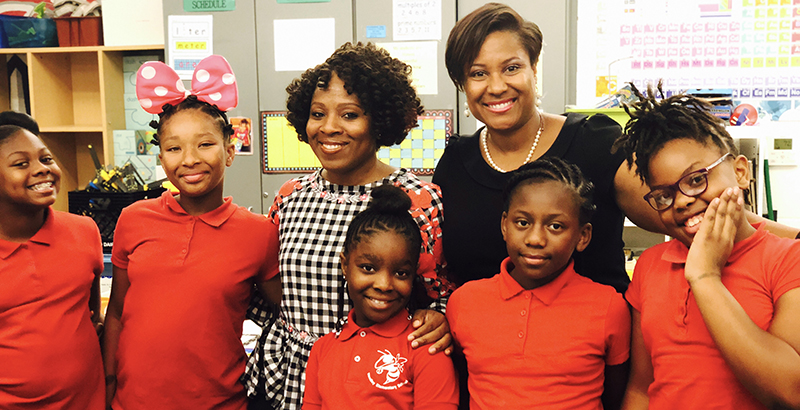
First Person: Some might not expect a school in southeast Washington, D.C., to have the only all-black robotics team at a national competition, or that students there are coding, problem-solving and engaging in critical thinking daily. But it does, and they do, a year after administrators at Hendley Elementary School made radical changes by introducing their predominantly African-American pre-K3 through fifth-grade students to the world of science, technology, engineering and math. Writes Principal Sundai M. Riggins, “I’m proud that our fifth-grade math proficiency rates on PARCC increased by 12 percentage points last year, but I’m even prouder that a student who struggled with behavioral challenges discovered his interest in physics at Hendley; that young scholars in our early childhood education classrooms learn to code by operating a train through Lego Education; and that our all-girls robotics team, the Sparkle Bots, prove that girls of color have a place in STEM.” The changes, she writes, are a result of D.C. Public Schools empowering school leaders to figure out what their students and communities need, and providing the resources and support to transform their schools — and on Thursday night, the school won the Standing Ovation for D.C. Public Schools 2019 Innovation for Excellence Award and $25,000. (Read the full essay)
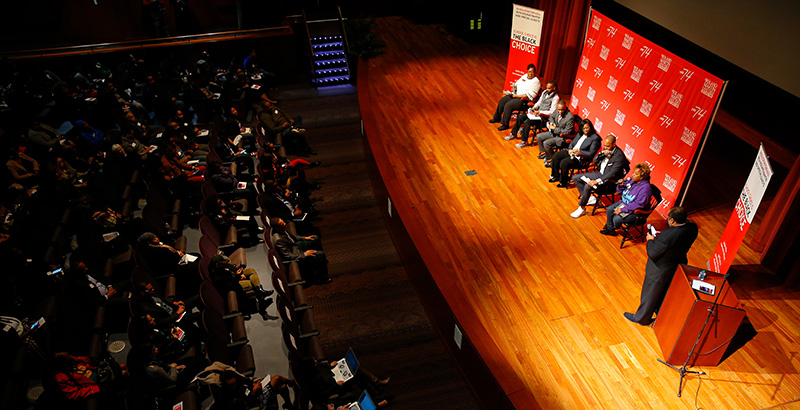
Town Hall: “We are on the same side.” That was the resounding takeaway from Genesis Innovation Academy founder Gavin Samms on Friday night at an education town hall led by broadcast journalist Roland Martin at historic Morehouse College in Atlanta. Approximately 300 families and community advocates attended “Is School Choice the Black Choice?” — an impassioned discussion on school choice, presented by Martin and The 74, that shook the auditorium and brought several attendees to their feet. While the fiery debate may have offered the contentious narrative that the black community is battling itself on school choice, Samms said it was quite the opposite, and that members of the community must work together to set a specific agenda that responds to the unique needs of their children and families: “We do need to measure what our kids know, but when the score itself becomes the thing, we will do whatever it takes to get the score. And while we do that, the rest of the world has moved on. We need an agenda that determines what we teach our kids separate from other communities, because there is a different need.” (Read the full report)
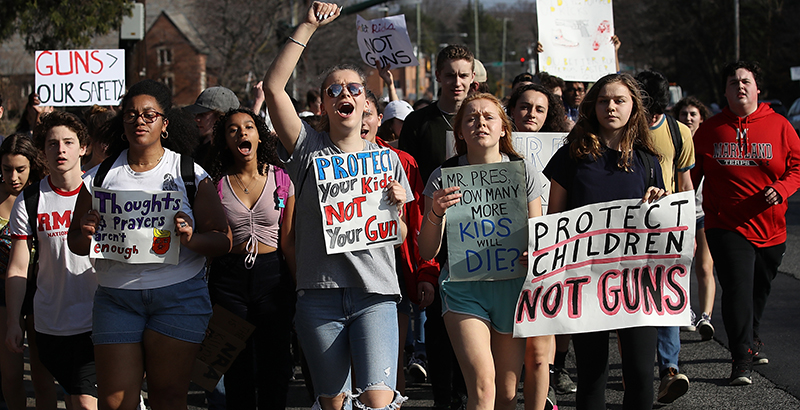
Student Activism: Students in 25 Maryland high schools could soon be allowed to skip class for up to three days each year if they’re participating in an official protest or other civic engagement. Montgomery County Schools saw a surge of student activism following last year’s school shooting in Parkland, Florida, and when students realized they were getting dinged with unexcused absences for their civic engagement, they lobbied their school board to give them some days each year to attend protests, hearings and other events without punishment. The county school board supports the idea and is scheduled to vote on it tomorrow. Board member Patricia O’Neill told The 74 that public schools were founded to prepare students to be citizens, and giving high schoolers time to practice that is “one way to establish a lifelong pattern of caring about the democracy.” (Read the full report)
Go deeper: See all our most shared highlights from January, December, and beyond.
Get stories like these delivered straight to your inbox. Sign up for The 74 Newsletter

;)


